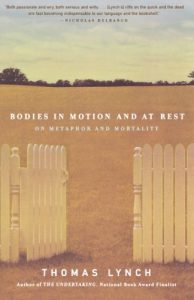Lament and hope
While death does not separate us from God, death does evoke despair and anger. What do psalms of lament (for example, Psalms 6, 22, 42, 69, 77) teach us about exposing emotions, rather than hiding them?
Christian practices provide no formula for transforming premature, tragic, or unjust deaths into good deaths. When is it most difficult to find redemptive significance in a "bad death"? What are ways the church can convey that one's life continues to matter to the community, no matter what kind of death?
In the life of Christian faith, lament is joined with hope. How does Jesus' conversation with Mary and Martha (John 11:17-27) point to this paradox?
As followers of Jesus, we cannot save death and dying for the end of our lives. Paul writes that our baptism involves us in dying with Christ (Romans 6:3-5). How does living with this awareness prepare us for the dying of our bodies?
Judgment and mercy
Many people near death with a sense of needing forgiveness. Do you know of any times when words of confession or forgiveness at the end of a life led to reconciliation with others or greater trust in God?
No one can count on dying well in a biological sense. Yet some Christians radiate faith and love even when their bodies are failing. Caregivers can radiate such faith and love as well, communicating the merciful presence of God in another way through their loving care for the body of one who is dying. Do you know anyone whose death has inspired those around him or her? Do you know anyone who has faithfully cared for someone through a prolonged period of dying?
In life and in death, we are God's
A serene death is not a test for proving spiritual maturity, and a difficult death is no indication that faith is lacking. When a death is long and difficult, how can others claim God's promises on behalf of the dying? How does cherishing and mourning a person who has died in turn prepare members of the community for the death eventually coming to them?
Like those being baptized into Christian faith, those who are dying draw strength from the faith of the entire community. How can the ways in which we remember deceased members of our communities prepare us for our own deaths?













